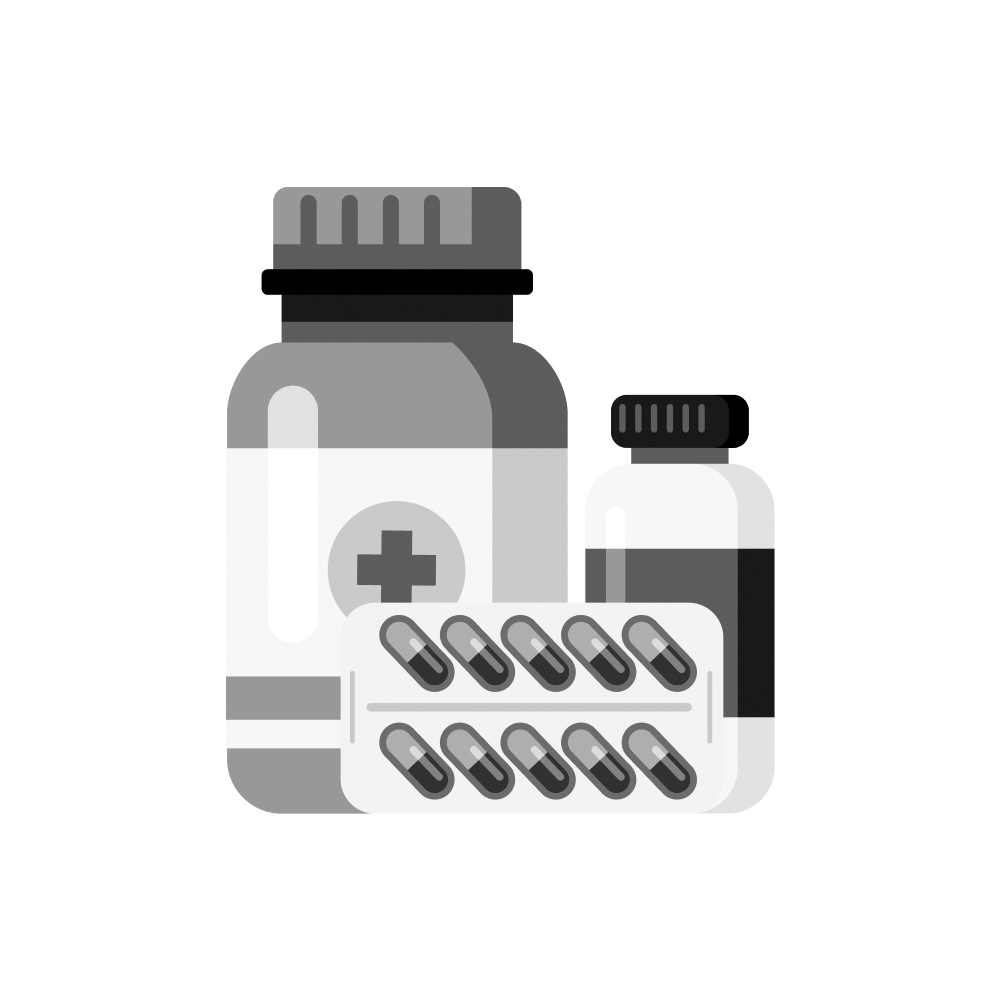

Out of stock
ব্যবসার জন্য পাইকারি দামে পণ্য কিনতে রেজিস্টেশন করুন
Register
Safety Advices
বাংলা
English
UNSAFE
It is unsafe to consume alcohol with Caid.
CONSULT YOUR DOCTOR
Caid is unsafe to use during pregnancy as there is definite evidence of risk to the developing baby. However, the doctor may rarely prescribe it in some life-threatening situations if the benefits are more than the potential risks. Please consult your doctor.
CONSULT YOUR DOCTOR
Caid is probably unsafe to use during breastfeeding. Limited human data suggests that the drug may pass into the breastmilk and harm the baby.
UNSAFE
Caid may decrease alertness, affect your vision or make you feel sleepy and dizzy. Do not drive if these symptoms occur.
CAUTION
Caid should be used with caution in patients with kidney disease. Dose adjustment of Caid may be needed. Please consult your doctor.
Use of Caid is not recommended in patients with severe kidney disease.
CAUTION
Caid should be used with caution in patients with liver disease. Dose adjustment of Caid may be needed. Please consult your doctor.
Use of Caid is not recommended in patients with severe liver disease.
Medicine Overview of Caid 75mg Tablet
Introduction
Caid is an antiplatelet medicine used to treat and prevent heart attacks, strokes and heart-related chest pain (angina). It helps to prevent the formation of blood clots in your blood vessels. It is a very widely used medicine for heart protection. Caid is usually best taken with food otherwise it may upset your stomach. The dose that is right for you depends on what you are taking it for and how well it helps your symptoms. You should take it as recommended by your doctor. The most common side effects of this medicine are heartburn or upset stomach, nausea, and...
... Show moreUses of Caid
- Heart attack
- Stroke
- Angina (heart-related chest pain)
Side effects of Caid
Common
- Heartburn
- Increased bleeding tendency
- Nausea
- Upset stomach
- Vomiting
How to use Caid
Take this medicine in the dose and duration as advised by your doctor. Swallow it as a whole. Do not chew, crush or break it. Caid is to be taken with food.
How Caid works
Caid is a non-steroidal anti-inflammatory drug (NSAID) with anti-platelet action. It works by preventing platelets from sticking together which decreases the formation of harmful blood clots. This lowers the chance of heart attack or stroke.
Quick Tips
- Caid helps prevent future heart attack and clot-related (ischemic) stroke.
- It is generally well-tolerated with minimum side effects.
- Take it with food to avoid an upset stomach.
- It may make you bleed more easily. Be careful while shaving, using sharp objects, or cutting fingernails or toenails.
- Inform your doctor if you notice blood in your vomit or have black/tarry stools.
- Stop taking Caid and tell your doctor if you have ringing in your ears, unusual bleeding, or nausea or vomiting that does not go away.
Brief Description
Indication
PO
Prophylaxis of myocardial infarction
Adult: 75-300 mg once daily. Lower doses should be used in patients receiving ACE inhibitors.
Stent implantation
Adult: 300 mg 2 hr before procedure followed by 150-300 mg/day thereafter.
Mild to moderate pain and fever
Adult: 150-300 mg repeated every 4-6 hr according to response. Max: 4 g/day.
Pain and inflammation associated with musculoskeletal and joint disorders
Adult: Initial: 2.4-3.6 g/day in divided doses. Usual maintenance: 3.6-5.4 g/day. Monitor serum concentrations.
Hepatic impairment: Severe liver disease: Not recommended
Administration
Alcohol, corticosteroids, analgin, phenylbutazone and oxyphenbutazone may increase risk of GI ulceration. Aspirin increases phenytoin levels. May antagonize actions of uricosurics and spironolactone.
Potentially Fatal: May potentiate effects of anticoagulants, methotrexate and oral hypoglycaemics.
Adult Dose
Patients with history of asthma, angioedema, urticaria or rhinitis, nasal polyp, severe renal or hepatic impairment, lactation.
Lactation: Drug enters breast milk; decision should be made regarding whether to discontinue nursing or to discontinue drug, taking into account importance of drug to mother.
Child Dose
Pregnancy category: C; D in 3rd trimester
Renal Dose
Aspirin is an analgesic, anti-inflammatory and antipyretic. It inhibits cyclooxygenase, which is responsible for the synthesis of prostaglandin and thromboxane. It also inhibits platelet aggregation.
Contraindication
PO
Juvenile rheumatoid arthritis
Child: 25 kg: 2.4-3.6 g/day
Pain & Fever
<12 years
10-15 mg/kg PO q4hr, up to 60-80 mg/kg/day
Mode of Action
Should be taken with food.
Precaution
Fever, Headache, Pain/inflammation, Acute coronary syndrome, TIA, MI, Stroke
Side Effect
Renal impairment
CrCl >10 mL/min: Dose adjustment not necessary
CrCl <10 mL/min: Not recommended
Pregnancy Category Note
GI disturbances; prolonged bleeding time, rhinitis, urticaria and epigastric discomfort; angioedema, salicylism, tinnitus; bronchospasm.
Potentially Fatal: Gastric erosion, ulceration and bleeding; severe, occasionally fatal exacerbation of airway obstruction in asthma; Reye's syndrome (children <12 yr). Hepatotoxicity; CNS depression which may lead to coma; CV collapse and resp failure; paroxysmal bronchospasm and dyspnoea.
Interaction
Hypersensitivity (attacks of asthma, angioedema, urticaria or rhinitis), active peptic ulceration; pregnancy (3rd trimester), children <12 yr, patients with haemophilia or haemorrhagic disorders, gout, severe renal or hepatic impairment, lactation.
ব্যবসার জন্য পাইকারি দামে পণ্য কিনতে রেজিস্টেশন করুন
Register